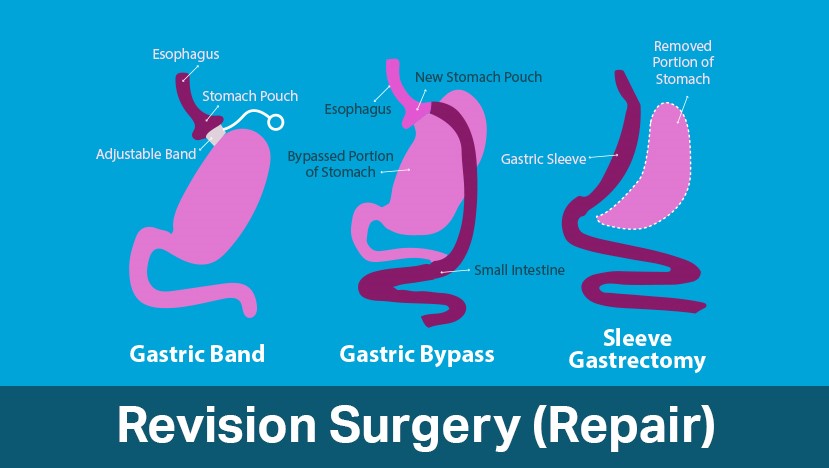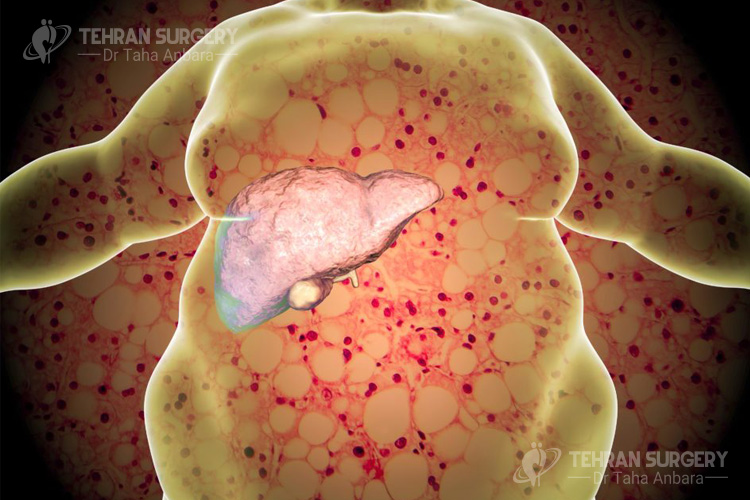
Revision bariatric surgery
Revision bariatric surgery is second weight loss surgery that is performed on patients who have undergone a type of weight loss surgery but have not achieved the desired results or their initial surgery was associated with some complications. Usually, it may occur due to personal changes like changing the way you eat, leaving a relationship, changing your job, stop exercising or change in the anatomy of your intestine or stomach. More addition, revision bariatric surgery may be required for patients who suffer from serious side effects and complications from their initial weight loss surgery.
Gastric sleeve revision surgery
Gastric sleeve surgery is a type of bariatric surgery that the stomach is cut and reshaped to the size and shape of a banana so, the capacity of the stomach will be reduced and the patient feels less hungry. Sometimes the sleeve may extend over the time and surgeon have to re-sleeve the stomach to correct this issue.
Lap-band revision surgery
In this type of weight loss surgery, a band has placed the top of the gastric to narrow size of the stomach pouch so the patient eats less, feel full sooner and then lose weight. Some patients may experience some significant complication associated with gastric band surgery such as band slippage (move up or down the band over the time) or development of a hole in the stomach lining. In this condition, the surgeons have to replace, reposition or remove the band. Sometimes additional bariatric surgery is needed.
Gastric bypass revision surgery
Some patients may regain weight after bypass surgery because of changes in their intestine and stomach as well as behavioral changes or some new stress in their life that. These conditions cause to eat more and absorb more calories. Sometimes the anatomy of the stomach and small intestine may be changed for example with a fistula that causes additional connection between the stomach and intestine. In this condition, a second surgery may be worked in order to repair or redo a gastric bypass. Generally, if you had bypass surgery but couldn’t lose weight or after your primary bypass surgery you were successful to lose weight but now you are regaining weight, you are a candidate for gastric bypass revision surgery.
Risks & recovery time
Revision surgery is associated with higher risks and complications than the initial surgery such as infection, bleeding, gastrointestinal leakage, longer hospital stays and recovery time.
The recovery time is also one or several days longer than original surgery because of altered blood supply and scar tissue. You may need to stay in the hospital for two or three days but the recovery time at home is almost the same as the original surgery.
Who is an ideal candidate for weight loss revision surgery?
Not everyone is the right candidate for bariatric surgery. If you suffer from complications of initial surgery or regain the lost weight and suffering from weight-related problems like heart disease, diabetes or body joint problems, you are the right candidate for revision bariatric surgery.
However, you should consult with a surgeon before going for a revision weight loss surgery. Your doctor considers your surgical history and your lifestyle to find the reason why your initial surgery is failed then determine the best type of surgery to resolve your problem.
What preparation is needed before revision bariatric surgery?
It is recommended to prepare yourself before revision surgery. First, you should change your diet and lifestyle because the most important reason for regaining weight after the initial weight loss surgery is eating more and doing less exercise. Usually, you will be asked to take a blood test, X-rays and endoscopy before revision weight loss surgery. Your doctor may also prescribe some vitamin or nutritional deficiencies before the surgery.









